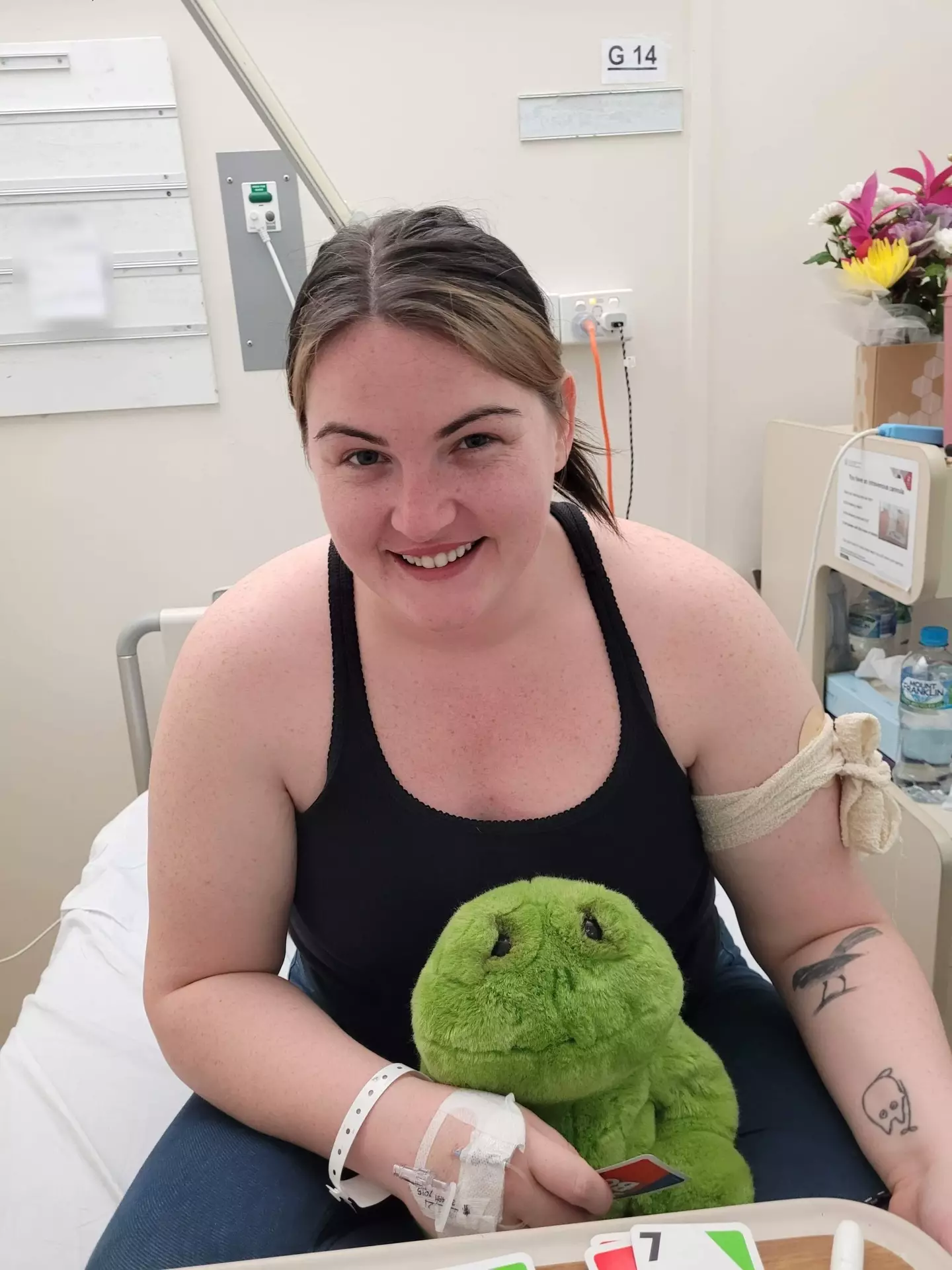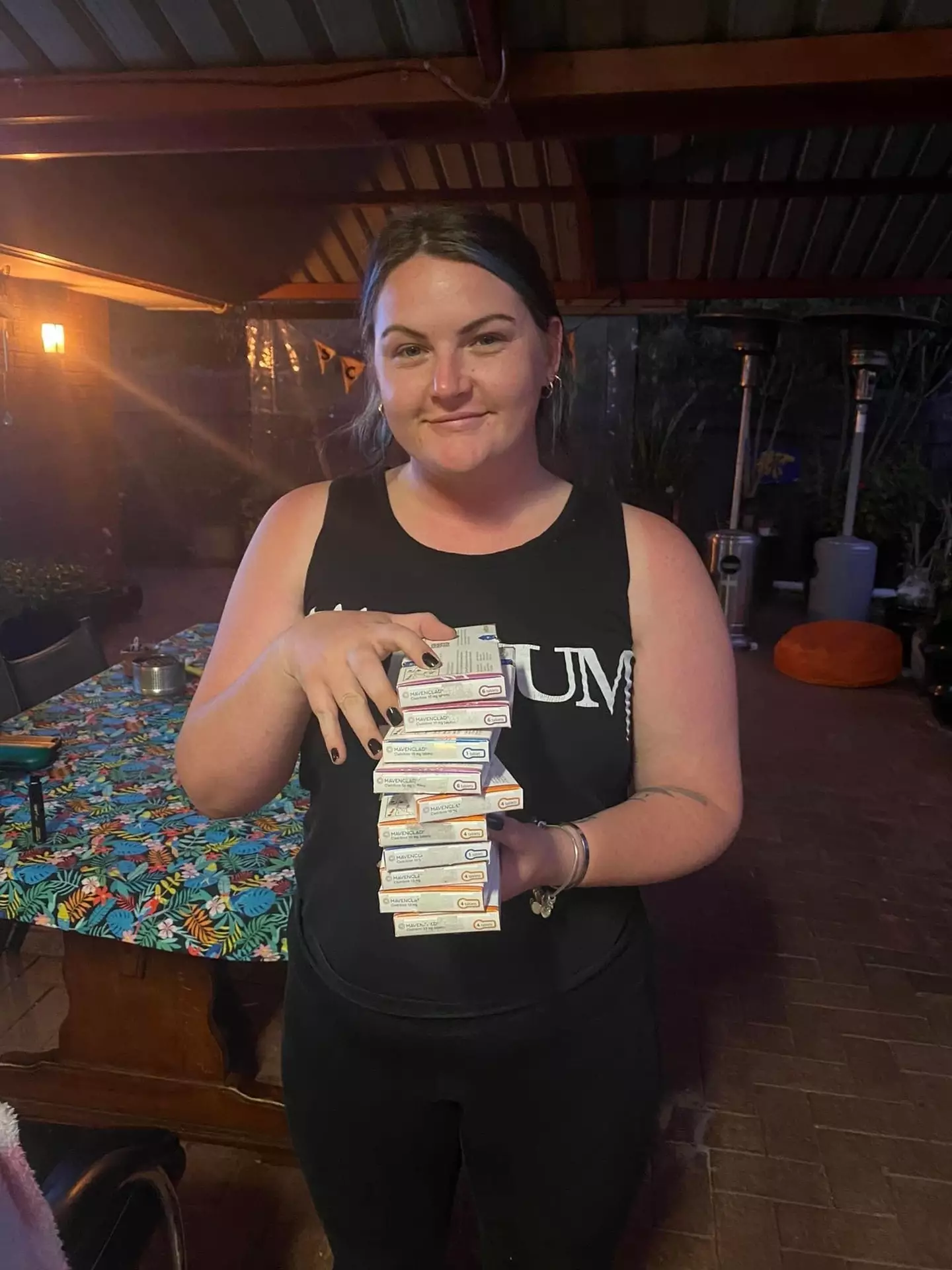.png)
When Malaynee Snell, an admin worker from Western Australia, woke up one morning in July 2021 with blurred vision, she thought it was caused by a strand of her dog's hair.
She was horrified to learn she actually had multiple sclerosis, a condition that was slowly turning her blind.
The 26-year-old sleeps with chihuahua Hector in her bed every night, so when she woke with impaired vision in her left eye, she believed it was due to a strand of hair being stuck under her eyelid.
"I woke up with blurry vision and it felt like my eye was trying to reject something," Malaynee says. "Hector has a bad habit of sleeping on my pillow so I thought I had a dog hair in there. I just put it down to that.
Advert

"I brushed it off and carried on with my day of painting. I rinsed my eye ten times and it never got any better or any worse. I thought that maybe I'd wake up the next day and it'll be fine."
But, by the second day, Malaynee's vision had deteriorated further and her family convinced her to see an optometrist.
She underwent scans of her eye and was immediately sent to hospital where was put on an intravenous drip to prevent the damage from getting worse.
Advert
She then had an MRI scan that confirmed she had irreversible optic nerve damage called optic neuritis caused by multiple sclerosis (MS). There were 12 lesions on her brain.
MS is a lifelong condition where the immune system mistakenly attacks the brain and/or the spinal cord. It affects more than 100,000 people in England and is more than twice as common in women.
In many cases, it's possible to treat the symptoms of MS, although it can sometimes cause serious disability and a slightly reduced life expectancy.

Advert
Malaynee said: "I was scared when I was admitted to hospital. The weird thing is that my pupil was reacting normally and my eye looked OK from the outside so it didn't look like it had anything in it.
"If I would have kept ignoring it and thinking it was something in my eye that would clear, I would have lost my sight completely. I'm glad I got it checked out when I did.
"Even though my life's been impacted by this, I'm still able to see and I'm able to drive and work.
"Every lesion on my brain is possibly an attack that's happened and I haven't noticed.
Advert
"There's symptoms that I might have ignored that could have stopped my eye from being what it is now, even though this is the best outcome."

Six months after being diagnosed, Malaynee began managing her MS with medication and diet control, but still suffers from regular headaches, balance issues, fatigue and muscle spasms.
She's now encouraging anyone with unusual symptoms to see a medical professional right away.
Advert
She said: "I'd tell people if they notice something isn't right, don't play it off because it could be much worse than you think."
